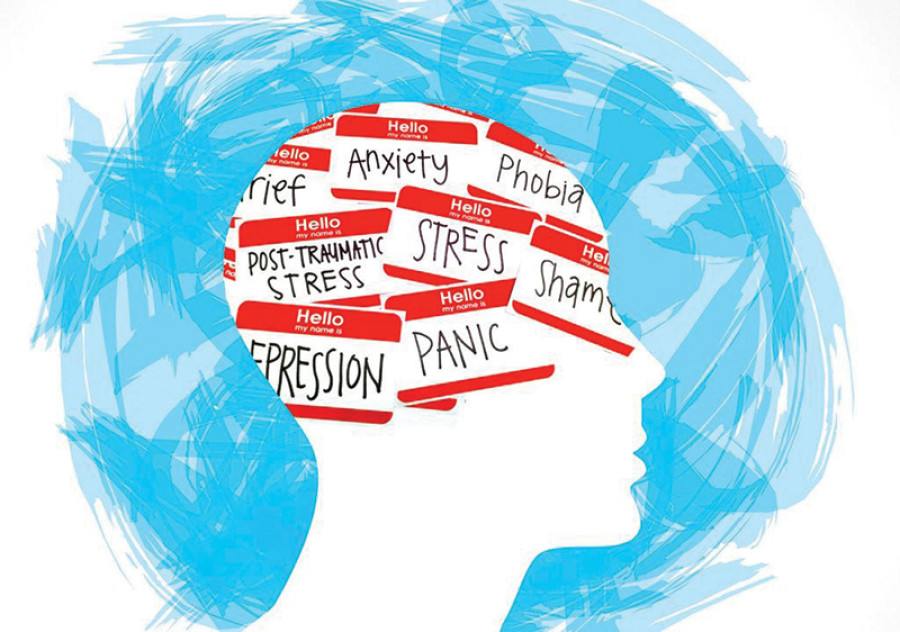Editorial
Victims of neglect
The government must first recognise the declining mental health of its citizens as a healthcare crisis.
Mental health is a global problem, with one in every eight people living with a mental disorder. Nepalis are also increasingly besieged by the most common mental health conditions like anxiety and depression. As per the National Health Survey 2022, in Nepal, 22 percent women and 11 percent men aged 15-49 have anxiety, while 5 percent women and 2 percent men have depression. What’s worse, Nepal Police data reveals 6,792 people died by suicide in the fiscal year 2021-22, which comes to over over 18 daily deaths. Despite the World Health Organisation’s recognition that the need for mental health is indisputable and urgent, the work done to prevent it seems no more than the proverbial drop in a bucket.
Nepal’s lack of mental health workers speaks volumes about the government’s negligence of this all-important issue. According to reports, many state-run health facilities in the country neither have mental health experts nor highly specialised clinical psychologists who can diagnose mental ailments. Moreover, a 2021 assessment by WHO shows a worrying shortage of psychologists—with only 0.1 for every 100,000 people (and only two psychologists in total in the state-run healthcare facilities).
Patients dealing with mental health issues face social stigma and struggle to find the right counsellor. Many feel compelled to hide their problems for fear of discrimination and ostracism. Mental health services, in terms of accessibility and affordability, are also costly and inaccessible. As the service is included in the list of basic services of the Public Health Care Act, it should have been accessible to all, regardless of their financial status. Unfortunately, this is not the case in Nepal, as efforts to maximise mental health care are primarily focused on urban areas, leaving the sufferers in rural areas in a lurch.
One way to address the problem would be to integrate mental health services into existing healthcare centres. This would involve hiring mental health professionals in government hospitals and ensuring people get the right treatment and counselling. Community-based mental health programmes should also be implemented, equipping local governments with mental health care services to reach needy communities. Nepal is a country committed to implementing the “Comprehensive mental health action plan 2013–2030”, which aims to improve mental health by strengthening effective leadership and governance, providing comprehensive, integrated and responsive community-based care, implementing promotion and prevention strategies and strengthening information systems, evidence and research. Still, the country doesn’t even have a standalone mental health policy or a specific mental health law.
To improve things, the government must first recognise the declining mental health of its citizens as a healthcare crisis and prioritise it in the budget and standalone policies; it should specify laws and allocate resources to build a more robust mental health setup. As the WHO states, on average, countries dedicate only around 2 percent of their healthcare budgets to mental health; Nepal is no better at this. The country desperately needs to invest more in awareness campaigns, research and studies to improve our understanding of mental health. Rather than pretending that there is no problem, the topic of mental health should be openly discussed and dealt with head-on.




 13.12°C Kathmandu
13.12°C Kathmandu














